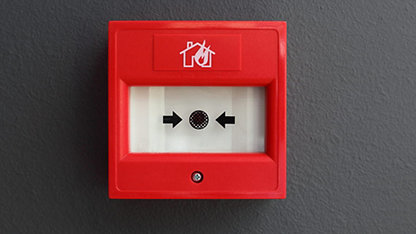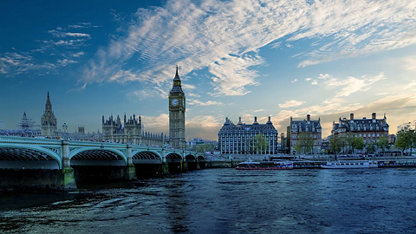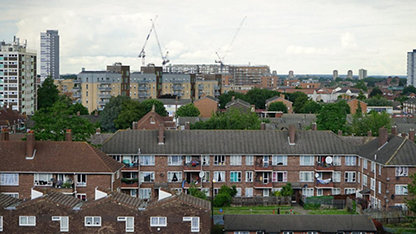Last month we marked the third-year anniversary and remember the 72 people who lost their lives in the Grenfell Tower fire in London on 14th June 2017. The tragedy continues to affect the families, survivors and the communities affected.
Since the Grenfell Tower fire, RICS has worked tirelessly both within the UK and internationally, to improve fire safety in the public interest. The establishment of a dedicated Fire Safety team, Fire Safety Working Group, and the formation & development of an international Coalition of 80+ bodies supported by the UN (International Fire Safety Standards), is witness to how RICS has led on the subject of fire safety post Grenfell.
We welcome the publication of the Building Safety Bill, which has been what seems a long time coming, in order to bring about the necessary once in a generation changes that are required to ensure England has a robust system in place to prevent anything like Grenfell ever happening again. More specifically:
- The new Building Safety Regulator (BSR) within the HSE(Health & Safety Executive), overseeing all HRBs (high risk buildings) has to be welcomed. We do however have concerns, whilst there is an understandable focus by Government on high risk buildings, the bill may create a 2-tier system of regulation especially when low rise buildings can create risk depending on the nature of occupancy.
- RICS has been part of the Future of Building Control Working Group set up by MHCLG, and has previously recommended the need for a Building Control designated body which reports to the Building Safety Regulator. Detail is yet to emerge but we look forward to working with Government and HSE to ensure this comes about as soon as possible.
- The statutory roles of: Principal Designer, Principal Contractor, and Building Safety Manager are another welcome addition. The Building Safety Manager is a new role, which will be a challenge. The necessary competence, training and accreditation will take time to implement, and will also have significant PII challenges. There is also the issue of significant skills shortages and Government should have resolving this on their to do list.
- The requirement for all those working on HRRBs to have third party accreditation of competence which includes training provision. The work of the Competence Steering Group (CSG) over the past 2 years, in which RICS have very actively participated, and the simultaneous publication of the CSG Final report this month supports the need for a higher level of competence framework for all those working on higher risk buildings.
- Support for BSI developing the competence framework and competencies for the three new statutory roles. RICS strongly supports this, and is involved in the development.
- The role of Residents Voice: RICS believes that it is very important that residents’ voices are heard, and that they have a say in safety. Issues in buildings are picked up fastest by those living there, and appropriate weight should be given to their concerns.
- Confidential reporting of fire safety issues is a positive step, and, as members of this group (CROSS), we fully support this.
- Safety case reviews at the three Gateways to approval. This new process is essential to ensure high risk buildings are constructed with sufficient careful evaluation of their safety through all stages and reviewed at each stage.
- Digital files for fire safety information throughout the lifecycle. In this digitally enabled age, it is essential all involved in the design, construction, management, ownership, occupation, management, valuation, lending and insuring of buildings in the future are able to easily access the details of any building including relevant product certification at any point.
- This Bill only covers England. We invite the other nations of the UK to scrutinise the Bill provisions, and to bring harmonisation and consistency across all nations of the UK. Fire knows no geographical or political boundaries, and we must strive to ensure there are no borders to fire safety consistency.
RICS has worked strenuously to improve and implement a more holistic approach to fire safety to have an impact on lives and communities around the world. As we recognise this once in a generation change that the Government hope to bring about, it's also important to share and applaud some of the accomplishments over the last three years.
Although Government have taken these steps, we believe we still have a long way to go, not least with the continuing issue of people living in high rise blocks wrapped in combustible cladding; nevertheless, with the ongoing support from our colleagues and key stakeholders in industry, RICS will continue to champion change and lead the way in our efforts to implement change in the public interest.
Our thoughts are with the families of Grenfell victims whom we will never forget as we remain committed to delivering confidence and playing a significant role in the change we hope to see and continue to be a part of.
Looking ahead
Our work, collaboration and sharing of best practice internationally, will shortly lead to the publication of the first International Fire Safety Standards Coalition document entitled ‘IFSS Common Principles’ which the UN intend to adopt. We look forward to sharing this with you.
Gary R Strong FRICS
RICS Global Building Standards Director
Chair of the International Fire Safety Standards Coalition
https://ifss-coalition.org/coalition-organisations/













